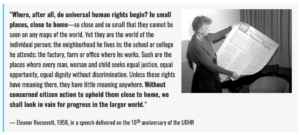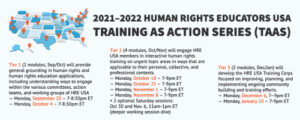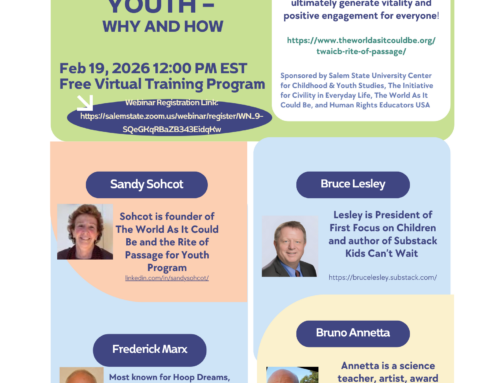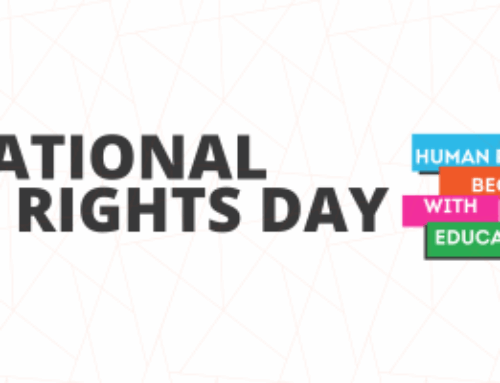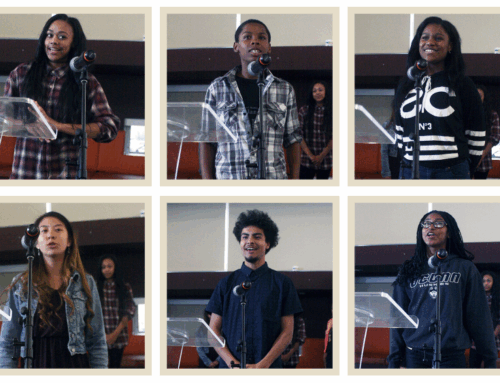Dear Friends and Colleagues,
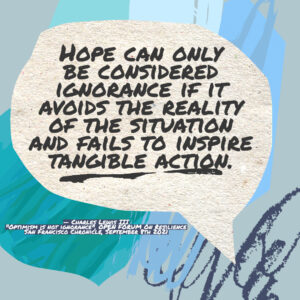 When I recently read the opinion piece “Optimism is Not Ignorance” by Charles Lewis III, I felt renewed conviction that we must retain our sense of hope, even as we feel fear and dread. The references Lewis makes to Civil Rights champions like Martin Luther King reminded me of my own sense of inspiration as a child of the 60’s, when I was inspired by John F. Kennedy and the leaders of the Civil Rights movement. I loved to hear stories about the women and men who took courageous action throughout history, to speak up for and initiate changes to right wrongs and improve the quality of life for the greater community. I did my share of marching in Washington and continue to take seriously my generation’s responsibility to question the status quo.
When I recently read the opinion piece “Optimism is Not Ignorance” by Charles Lewis III, I felt renewed conviction that we must retain our sense of hope, even as we feel fear and dread. The references Lewis makes to Civil Rights champions like Martin Luther King reminded me of my own sense of inspiration as a child of the 60’s, when I was inspired by John F. Kennedy and the leaders of the Civil Rights movement. I loved to hear stories about the women and men who took courageous action throughout history, to speak up for and initiate changes to right wrongs and improve the quality of life for the greater community. I did my share of marching in Washington and continue to take seriously my generation’s responsibility to question the status quo.
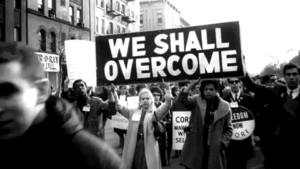 In organizing material from our Curriculum and Resource Guide for a Human Rights Education training session called “Confronting the Personal” conducted by HRE USA, that we’ll soon be part of, I began thinking more about the significance of recognizing our own name and personal story as part of finding our place in our immediate and extended communities. This seems directly connected to boosting one’s optimism about what is possible even in the face of major challenges like those we face from climate change, a continuing COVID crisis, divisive politics and all the resulting uncertainty.
In organizing material from our Curriculum and Resource Guide for a Human Rights Education training session called “Confronting the Personal” conducted by HRE USA, that we’ll soon be part of, I began thinking more about the significance of recognizing our own name and personal story as part of finding our place in our immediate and extended communities. This seems directly connected to boosting one’s optimism about what is possible even in the face of major challenges like those we face from climate change, a continuing COVID crisis, divisive politics and all the resulting uncertainty.
 So, with this, I invite you to take a closer look at your name and story and consider sharing the following exercises with people around you:
So, with this, I invite you to take a closer look at your name and story and consider sharing the following exercises with people around you:
- Check out why our names are so important as explained in this write-up “On the Importance of Names” by the University of British Columbia;
- My Name Story: Here is a link to the fillable form that helps explain your name and more about you. This form was created and is used by our friend and colleague Pedro Mena in his work. And, here is the form I filled in just so you know me a little more.
- Review Working Narratives, the work of Marshall Ganz on the significance of public narratives and how our own story helps us join with others in community around common interests and concerns.
- Here is a link to the full worksheet created by Marshall Ganz to guide your narrative development.
I believe that in order for us to value and help implement the principles of the Universal Declaration of Human Rights, we must value ourselves as human beings that are a vital part of the global community. Let’s start with appreciating our names and stories!
With appreciation and best regards,
Sandy Sohcot, Director
Additional Resources
The World As It Could Be: Bringing the Meaning of the UDHR Home
2021-2022 Human Rights Educators USA Training As Action Series (TAAS)


